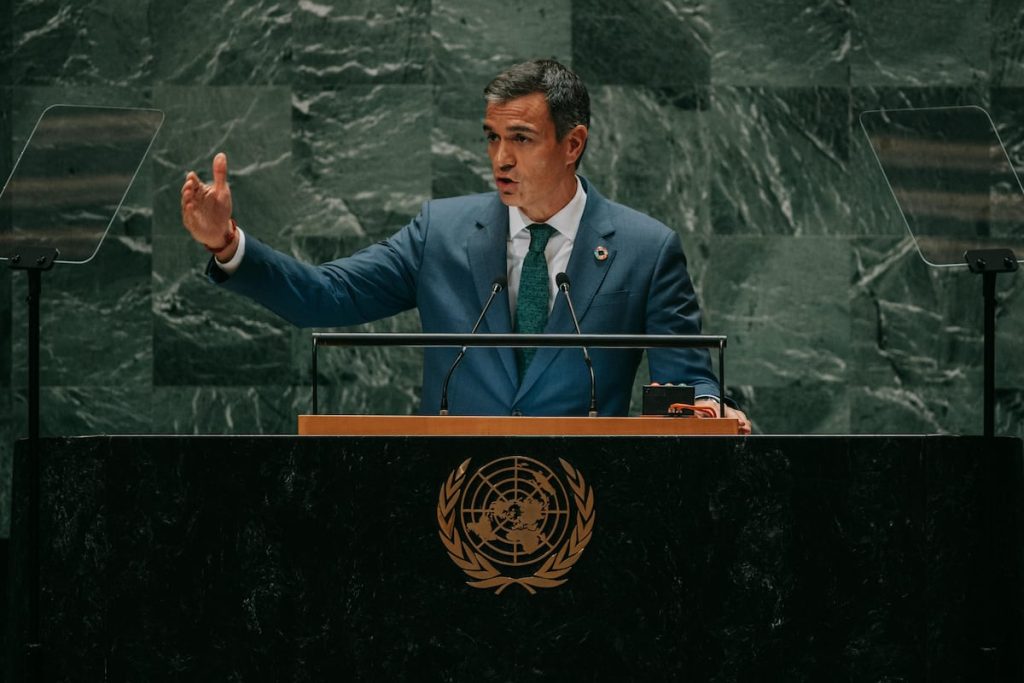Pedro Sánchez used his speech at the United Nations General Assembly in New York to address the issue of fighting disinformation, misinformation, and the rise of the far-right in Western countries. He expressed concerns about the risks democracy faces, with rights that were once thought to be secure now being questioned or reversed. Sánchez highlighted the need for democracies to defend themselves against these threats and find new solutions, emphasizing the importance of transparency, accountability, and citizen engagement to strengthen democratic institutions.
In addition to discussing the challenges facing democracy, Sánchez also condemned the wars in Gaza and Ukraine, as well as the political persecution in Venezuela. He called on the regime of Nicolás Maduro to stop the political persecution of the opposition and criticized the growing conflicts around the world. Despite these challenges, Sánchez remained optimistic about the progress that has been made in key areas such as infant mortality, education, and gender equality. He urged against succumbing to pessimism and emphasized the importance of continuing to work towards a better future.
Sánchez was particularly critical of Israel’s actions in Gaza and Lebanon, highlighting the escalating violence in the region and emphasizing the need for respect for international humanitarian law. He also addressed the situation in Venezuela, expressing Spain’s unwavering commitment to democracy and human rights in the country. Sánchez called for a transparent recount of the election results in Venezuela and stressed the importance of respecting the will of the Venezuelan people through a negotiated agreement between the government and the opposition.
At the UN, Sánchez also called for a comprehensive reform of the institution, advocating for an expansion of the Security Council’s membership and the removal of the veto power held by the five permanent members. He argued that the current state of the Security Council, with resolutions being ignored and constant deadlock due to the veto power, was unsustainable. Sánchez’s support for the UN and his call for reform underscored his belief in multilateralism and the need for a more inclusive and effective international organization.
Sánchez’s speech at the UN highlighted his strong stance on defending democracy, human rights, and international cooperation. He presented a vision of a world facing significant challenges but also making progress in key areas. By addressing issues such as disinformation, conflict, and the need for institutional reform, Sánchez demonstrated his commitment to promoting a more just and equitable global order. His message called for unity, transparency, and accountability in addressing the complex challenges of the modern world.


